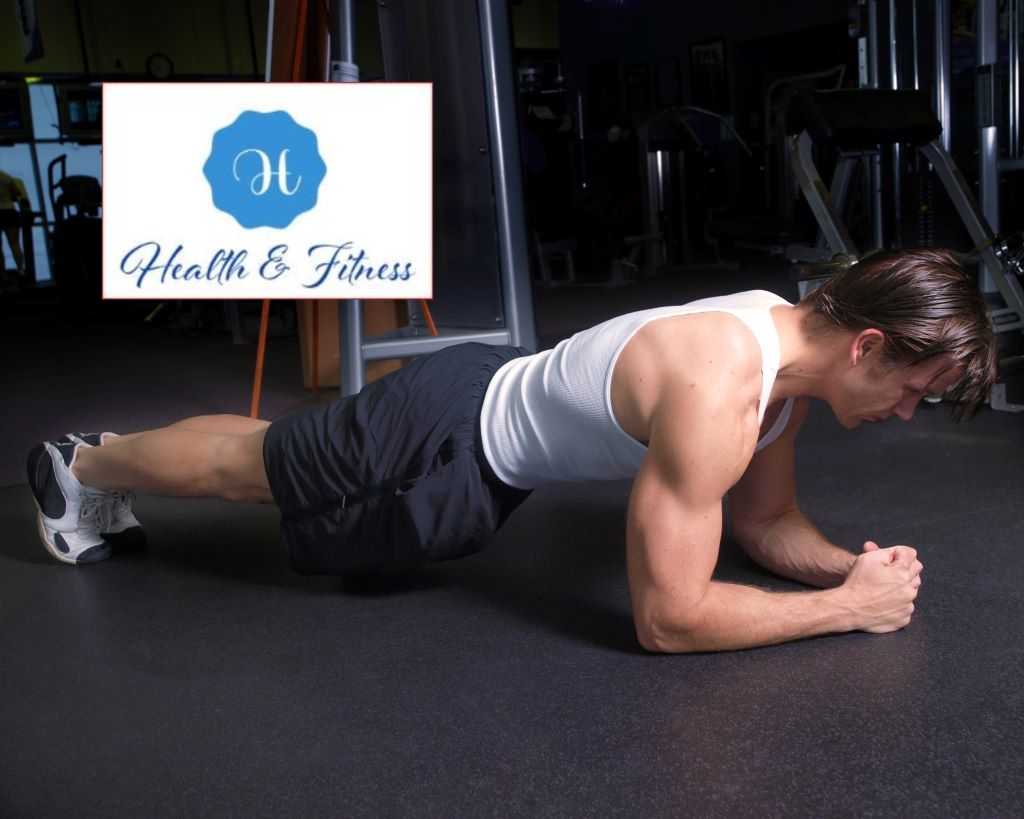The Benefits of Regular Exercise: Unlocking the Secret to a Healthy Life
Unlocking the Secret to a Healthy Life: The Surprising Benefits of Regular Exercise –
Maintaining good health is essential for a happy and fulfilling life. Regular exercise is one of the best ways to achieve this goal. Exercise is not just about losing weight or building muscle; it has numerous physical and mental benefits that can improve overall health and well-being.
Physical activity is essential for maintaining a healthy weight, improving cardiovascular health, strengthening muscles and bones, and reducing the risk of chronic diseases such as diabetes, heart disease, and some cancers. Exercise is also a powerful tool for reducing stress, improving mood, and enhancing cognitive function.
In this blog post, we’ll explore the benefits of regular exercise for overall health. We’ll discuss exercise’s physical and mental benefits, offer tips for incorporating exercise into daily life, and provide strategies for overcoming common barriers to exercise. By the end of this post, you’ll better understand the importance of regular exercise and be motivated to make it a part of your daily routine.

Physical Benefits of regular exercise –
Regular exercise offers a wealth of critical physical benefits for maintaining good health.
Here are some of the key benefits of exercise:
- Improved cardiovascular health:
Exercise strengthens the heart and lungs, making them more efficient at pumping blood and oxygen throughout the body. This helps to reduce the risk of heart disease, stroke, and other cardiovascular conditions. Regular exercise can also help to lower blood pressure and reduce the risk of developing high cholesterol.
- Stronger muscles and bones:
Regular exercise helps build and maintain strong muscles and bones essential for mobility and overall physical function. This is particularly important as we age, as muscle and bone strength tend to decline.
Exercise can also help to prevent or manage conditions such as osteoporosis and sarcopenia.
- Reduced risk of chronic diseases:
Exercise has been shown to reduce the risk of chronic diseases such as diabetes, obesity, and some cancers.
This is partly because exercise helps regulate blood sugar levels, reduce inflammation, and improve immune function.
Exercise can also help improve insulin sensitivity, which is essential for preventing or managing type 2 diabetes.
- Improved flexibility and balance:
Exercise can help to improve flexibility and balance, which are critical for preventing falls and other injuries.
As we age, we lose flexibility and balance, increasing the risk of falls and fractures. Exercise such as yoga, Pilates, and tai chi can help improve flexibility and balance and reduce the risk of falls.
- Weight management:
Exercise can help to maintain a healthy weight by burning calories and building lean muscle mass.
This is important for preventing obesity, a risk factor for many chronic diseases.
So, what types of exercise are best for achieving these physical benefits? Here are a few examples:

- Cardiovascular exercise:
This includes running, cycling, swimming, and brisk walking.
Aim for at least 30 minutes of moderate-intensity cardiovascular exercise most days of the week.
This can be broken up into shorter sessions throughout the day if needed.
- Strength training:
This includes weight lifting, resistance bands, and bodyweight exercises such as push-ups and squats.
Aim to strength train at least 2-3 times per week, targeting all major muscle groups.
Start with lighter weights or resistance bands and gradually increase the weight or resistance over time.
- Flexibility training:
This includes stretching and yoga, which can help improve the range of motion and reduce the risk of injury.
Aim to stretch for at least 10-15 minutes each day.
Yoga and other mind-body exercises can also help to reduce stress and improve mental health.
Incorporating a variety of these types of exercise into your routine can help you achieve the physical benefits of exercise and maintain good health over the long term. It’s essential to consult a healthcare provider before starting a new exercise routine, especially if you have any underlying health conditions. With the right guidance and approach, exercise can be enjoyable and rewarding for maintaining good health and preventing chronic diseases.

Mental Benefits of Regular Exercise
In addition to the physical benefits of exercise, regular physical activity can also positively impact mental health.
Here are some of the key mental benefits of exercise:
- Reduced stress and anxiety:
Exercise can help reduce stress hormone cortisol levels and increase the production of endorphins, which are natural mood boosters.
This can help reduce stress and anxiety and improve overall mood.
- Improved sleep:
Exercise has been shown to improve sleep quality and help individuals fall asleep more easily.
This is likely because exercise helps to regulate the body’s circadian rhythm,
as well as reduce stress and anxiety.
- Increased self-esteem:
Regular exercise can help to improve self-esteem and self-confidence by promoting a sense of accomplishment and mastery.
This is particularly true when individuals set and achieve fitness goals, such as running
a 5K or lifting a certain amount of weight.
- Improved cognitive function:
Exercise has been shown to improve cognitive function, including memory, attention, and decision-making abilities.
This is likely because exercise helps to increase blood flow and oxygenation to the brain, as well as promote the growth of new brain cells.
So, what types of exercise are best for achieving these mental benefits? Here are a few examples:
- Cardiovascular exercise:
This includes activities such as running, cycling, swimming, and brisk walking.
Aim for at least 30 minutes of moderate-intensity cardiovascular exercise most days of the week to experience the stress-reducing benefits of exercise.
- Mind-body exercise:
This includes activities such as yoga, Pilates, and tai chi, which can help to reduce stress and improve mental health by promoting mindfulness and relaxation.
Aim to practice mind-body exercises for at least 20-30 minutes a few times weekly.
- Group exercise:
Participating in group exercise classes such as dance, kickboxing, or cycling can provide social support and a sense of community, which can help to reduce feelings of isolation and improve mental health.
Incorporating a variety of these types of exercise into your routine can help you achieve the mental benefits of exercise and improve your overall well-being.
It’s important to note that exercise is not a substitute for professional mental health treatment, and individuals with mental health concerns should consult a healthcare provider to determine the best course of treatment. However, regular exercise can be a valuable tool for promoting mental health and improving quality of life.

Tips for Incorporating Exercise into Daily Life: Benefits of regular exercise –
While the benefits of exercise are clear, many people struggle with finding the time
and motivation to incorporate physical activity into their daily routines.
Here are some tips for making exercise a regular part of your daily life:
- Start small:
If you’re new to exercise or have fallen out of a routine, it’s essential to start small and gradually increase your activity level.
This could mean starting with just a few minutes of exercise daily and gradually working your way up to 30 minutes or more.
- Find activities you enjoy:
The key to sticking with an exercise routine is finding activities you enjoy.
This could mean trying out different types of exercise, such as hiking, swimming, or dance classes, until you find something you genuinely enjoy.
- Make it a habit:
One of the most effective ways to incorporate exercise into your daily life is to make it a habit.
This means scheduling exercise into your daily routine, just as you would any other appointment or obligation.
- Find a workout buddy:
Having a workout buddy can provide motivation and accountability, making it more likely that you’ll stick with your exercise routine.
This could mean working out with a friend, joining a sports team, or taking group exercise classes.
- Make it fun:
Exercise shouldn’t be a chore.
Finding ways to make your workouts more enjoyable, such as listening to music, trying new activities, or working out outdoors, can help to make exercise feel less like a burden and more like a fun activity.
- Sneak in exercise throughout the day:
Exercise doesn’t have to mean spending hours at the gym.
Finding ways to sneak in exercise throughout the day, such as taking the stairs instead of the elevator or going for a walk during your lunch break, can add up to significant physical activity over time.
Incorporating exercise into your daily life can be challenging, but with the right mindset and strategies, it’s possible to make physical activity a regular part of your routine.
Remember, even small amounts of exercise can have significant physical and mental health benefits, so don’t be discouraged if you’re starting.
You can improve your overall health and well-being by finding activities you enjoy, making exercise a habit, and finding ways to make it fun.

Conclusion
Exercise has countless perks. Regular exercise can reduce the risk of chronic diseases like heart disease and diabetes and enhance strength, endurance, and fitness.
Exercise reduces stress, improves sleep, and boosts brain function.
It’s hard to fit exercise into your daily routine, but even tiny amounts can help.
Start small, find things you enjoy, and make exercise a habit to improve your health.
If you battle to exercise, ask friends, family, or healthcare professionals for help.
With the right mindset and strategies, you can incorporate regular exercise into your life and gain its many benefits.
Whether you like to run, lift weights, or do yoga, make exercise a daily goal and see how it can improve your health and well-being.
If you find a Meditation, Wellness Coach Then Visit this site:
Meditation Coach
I am Alicia Christine, A trauma-informed meditation coach, writer, and healing space facilitator from the USA. Who helps women overcome trauma and live happier, healthier lives.
I know that you’ve been through some stuff and I have too. I understand the courage it takes to acknowledge your adversity and traumatic experiences. When we allow the nervous system to finally rest through the BREATH, we can begin to identify and release pain, trapped emotions, and disease in our bodies. Inner work isn’t easy but it’s worth it. I hope to be a guide that helps you along this path, together we’ll unlock healing.



